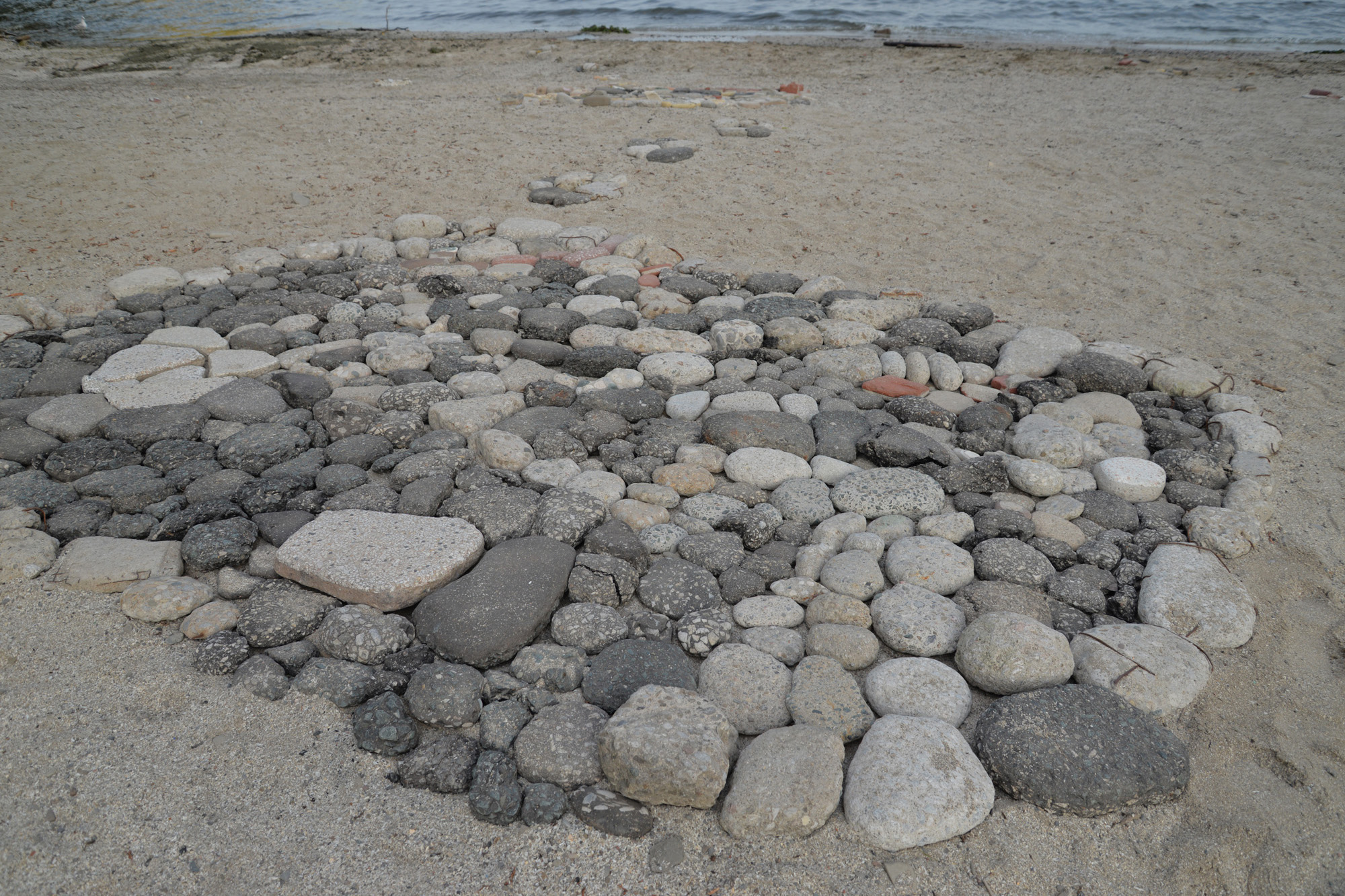

 allgrowrhythms (commissioned for Shoalings, curated by Lillian O’Brien Davis, Nuit Blanche Toronto, 2023)
allgrowrhythms (commissioned for Shoalings, curated by Lillian O’Brien Davis, Nuit Blanche Toronto, 2023)


 allgrowrhythms (commissioned for Shoalings, curated by Lillian O’Brien Davis, Nuit Blanche Toronto, 2023)
allgrowrhythms (commissioned for Shoalings, curated by Lillian O’Brien Davis, Nuit Blanche Toronto, 2023)
There is an almost irresistible impulse to walk along a shoreline, run your hand through sand or pick up a pebble - even if it turns out to be an eroded piece of concrete. Like lookouts, beaches can stimulate inward contemplation and outward reflection on our natural world. Such spaces also prompt a particularly restorative state of mental alertness called “involuntary attention”, where slight environmental changes cause the conscious mind to shift focus. Such stimulation (also sparked by gardening or talking walks) offers a break from goal-oriented “directed attention.”
Algorithms have always existed as sets of simple instructions to achieve goals (like ceremonies or recipes). But before they were rigidly formalized by science, they were materially oriented everyday practices. As AI increasingly delineates our movements through real and virtual worlds, and the algorithms running their operations become more sophisticated, we should remember that our impulse to find order and classify relates to a troubling tendency to assert ourselves over our environment. How can we include the different more slippery kinds of intelligences found in the natural world and also within our own minds?
We engaged grade 2/3 children in algorithmic play and incorporated the results into thought-bubble found beachrock mosaics. As it was an artificial beach, the beachrock pieces were actually bits of eroded concrete, asphalt, ceramic tiles and brick - physical markers of past human activity. An audio soundtrack composed of environmental sounds and animal movement created a space for contemplation. Thinking can shimmer and glide over ideas and objects; it is a material, as well as immaterial practice in a more-than-human world. Paying attention to different modes of perception can liberate domineering habits of rational thinking and provide a path towards decolonizing thought.
Bio:
Soft Turns is the collaborative effort of Wojciech Olejnik (he/him) and Sarah Jane Gorlitz (she/her). Alongside simple mechanisms —pulleys, mirrors, paper, lenses—and crucially, their own bodies, they use stop-motion animation’s capacity to stretch and collapse time, to attempt to get as close as possible to the rhythms of their subjects. The results are slow-paced, immersive, intimate video-centred installations. Recent research interests include: controlled artificial environments such as greenhouses and data centres, plant-human interactions and the physics of information. Feature articles about their work have been published in Canadian Art and Esse. Their work has been exhibited across Canada and internationally, most recently at the Plumb (Toronto, 2021) 8eleven (Images Festival, 2018), and The Art Museum at the University of Toronto (2018). Sarah Jane is a white settler of English and Mennonite descent and Wojciech immigrated from Poland as an adolescent. Together, they have been privileged to live and participate in several communities abroad and in Canada, including a pivotal three year residency at The School of Environmental Sciences, University of Guelph (2016-19). They currently work and live with their two young daughters in the Lakeshore Village Artist Co-op, on the lands of the Mississaugas of the Credit, the Anishnabeg, the Chippewa, the Haudenosaunee and the Wendat peoples, in what is commonly referred to as Toronto.
soft turns | C.V. | text by Weiyi Chang: #1 #2 | text by Tak Pham | text by Kate Whiteway
